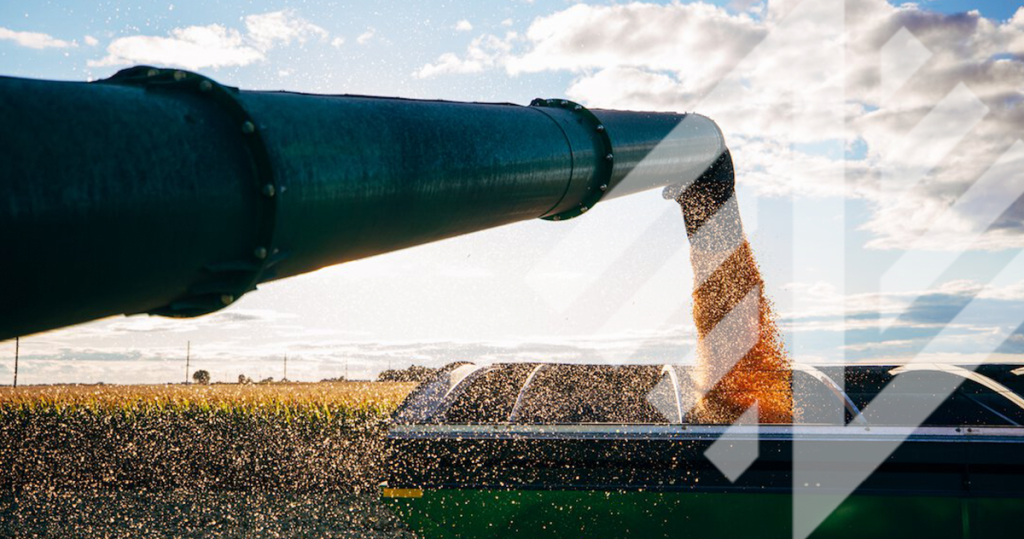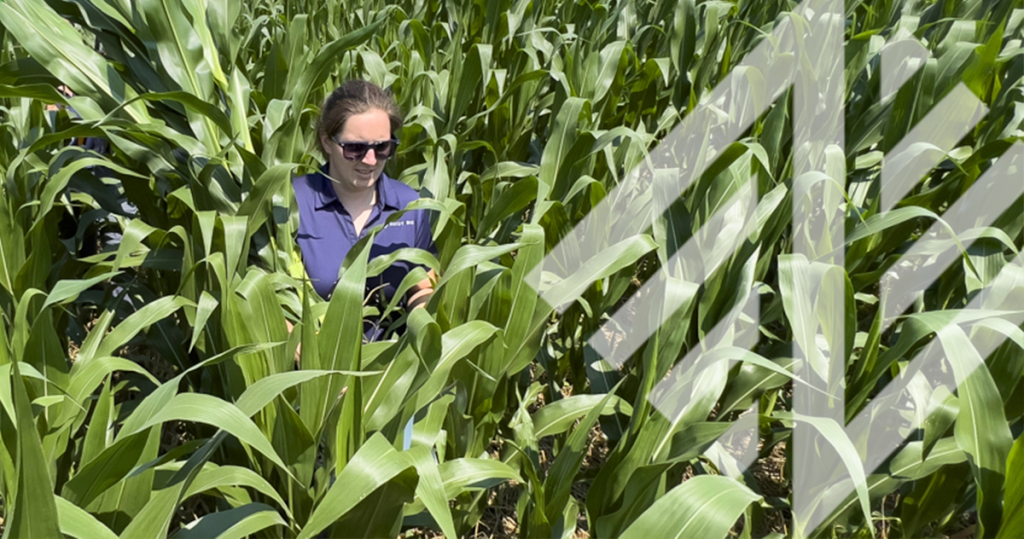Three Land-Grant Universities Study Pivot Bio Performance

Pivot Bio has worked with independent research organizations and partnered with more than 20 land-grant institutions to produce high-quality data for farmers to review when considering Pivot Bio as part of their fertility programs. Land-grant institutions and their Extension programs are dedicated to empowering farmers to implement solutions to today’s complex food production problems. These institutions are ideally positioned to provide growers with science and research-based approaches.
Recently, Pivot Bio has partnered with different universities to conduct multi-year research trials evaluating various aspects of our product performance. We partnered with North Carolina State University to examine how Pivot Bio PROVEN® 40 affects productivity in corn crops. At Iowa State University, university researchers investigated how PROVEN 40 increases efficiency. And to test how PROVEN 40 affects performance, we partnered with the University of Georgia, Purdue University, and the University of Illinois.
High-performance crops can improve return on investment (ROI) and crop yields for farmers, but there are a few ways to potentially improve performance. One of the reasons Pivot Bio originally set out to create a better product that delivers nitrogen to plants is that synthetic nitrogen is one of the most expensive inputs for a grower, but only about half of all applied synthetic nitrogen fertilizer ever makes it to the plant. This loss hurts farmers financially and has negative environmental impacts, too.
Each of the three universities that researched PROVEN 40’s performance have innovative researchers with deep expertise:
- Dr. Henry Sintim is a soil fertility and plant nutrition specialist at the University of Georgia whose research focuses on increasing row crop efficiency, productivity and profitability and soil health with ecologically-conscious nutrient management. His performance experiment sought to determine the yield and test weight of PROVEN 40 on corn with trials in Tifton and Midville, GA. He used a replicated small block trial at the Tifton site to compare various nitrogen treatments with PROVEN 40 as a nitrogen replacement. One treatment used 250 lbs. of nitrogen/acre(A), representing the area’s Standard Grower Rate (SGR). The next treatment used the SGR and PROVEN 40 combined. Following that, Dr. Sintim reduced the amount of nitrogen by 20 and 40 lbs. respectively, for treatments of 230 lbs. of nitrogen with PROVEN 40 and 210 lbs. of nitrogen with PROVEN 40. Finally, a nontreated check of 210 lbs. of nitrogen was a control treatment. Over in Midville, GA, Dr. Sintim ran a different on-farm replicated strip trial using the SGR for one treatment and the SGR plus PROVEN 40 as the other treatment. This trial represents a highly close approximation to real-world field conditions.
- At Purdue University, Dr. Tony Vyn also investigated the impact of PROVEN 40 on yield at different nitrogen rates. Dr. Vyn is an expert in crop physiology, nitrogen, and cropping systems to improve profitability and sustainability. At the Purdue University research farm, he implemented a large plot trial with eight replications in West Lafayette, Indiana. He tested PROVEN 40 compared to non-treated checks at six different nitrogen rates, ranging from 0 lbs. of nitrogen/A up to 255 lbs./A. Essentially, this university research effort sought to test how much nitrogen of the SGR PROVEN 40 can potentially replace while maintaining yield.
- Dr. Fred Below of the University of Illinois took a slightly different angle to test PROVEN 40’s performance capabilities. Dr. Below’s specialty is developing sustainable agricultural systems that produce high-yielding soybeans and corn. He conducts research surrounding nutrients, particularly nitrogen and utilizing nitrogen efficiently. For his study, Dr. Below evaluated PROVEN 40’s effect on corn yield when applied by itself and combined with different carbon additives that served as a food source for the microbes. He and the team used the same nitrogen rate (140 lbs. N/A) across every plot. Dr. Below used a non-treated check with 140 lbs. N/A, 140 lbs. N/A with PROVEN 40 and 140 lbs. N/A with PROVEN 40 plus either high fructose corn syrup, humic acid, or one of two Pivot Bio experimental carbon additives. He ran these trials across four locations in northern, middle, and southern Illinois.
Pivot Bio and our three partnering institutions conducted in-depth university research trials to test performance in different ways. So, what did we discover? From Dr. Sintim’s study in Tifton, GA, data shows that replacing 20 lbs. of synthetic nitrogen fertilizer with PROVEN 40 resulted in greater yields and higher test weights. At 230 lbs. N/A with PROVEN 40, crop yields increased by 4 bu/A while test weights increased by +1.2 bu/A. And at the SGR of 250 lbs. N/A with PROVEN 40, yields increased by 9 bu/A while test weights increased by +3.2 bu/A. In Midville, GA, corn plants treated with the SGR and PROVEN 40 produced 13 bu/A more than the non-treated check of just the SGR.
Dr. Vyn’s studies at Purdue showed that corn plants treated with PROVEN 40 had higher yields compared to the non-treated check across all nitrogen rates. From +2 bu/A to +12 bu/A, Purdue’s data shows an average increased corn yield of +6 bu/A. Interestingly, the researchers found that soils with higher potassium levels experienced higher yield responses. As with any nutrient strategy, growers must measure their micro and macronutrient levels for a holistic understanding of their soils.
Dr. Below’s test sites across Illinois showed increased corn yields for plants treated with PROVEN 40 compared to the non-treated check. And of the four food source additives, corn plants treated with Pivot Bio’s experimental carbon sources experienced even greater yield increases. With just PROVEN 40, researchers saw an increase of +7 bu/A compared to the nontreated check. Corn yields increased by an additional +3 – 4 bu/A with the experimental carbon sources. “Pivot Bio is trying to create a product that can enhance the performance of PROVEN 40,” says Dr. Below. “The microbes live on crop roots and survive on root exudates from the roots once plants are established. These experimental carbon additives are an effort to determine what energy sources microbes prefer that might enhance their ability to fix nitrogen early in the growing season.”
From these university-driven performance trials, we’ve seen that the product can generate a positive response across multiple states and soil types that reflect local production practices. PROVEN 40 microbes remain on the plants’ roots throughout the season, continually fixing nitrogen from the atmosphere into plant-ready ammonia. Using PROVEN 40 can reduce the amount of synthetic nitrogen farmers need to apply to their fields, saving them money while reducing the amount of nitrogen lost to the environment.
Using fewer inputs, spending less money and still experiencing positive crop yields is the ROI growers require from products they trust. At Pivot Bio, we constantly strive to earn and retain our growers’ trust with high-quality products that perform. Our recent partnerships with the University of Illinois, Purdue University and the University of Georgia provide the type of independent data farmers can reference to inform decisions for their operations.
With more studies underway for 2023 and planned for the future, we will continue to support independent research that tests the productivity, efficiency, and performance of our products.


